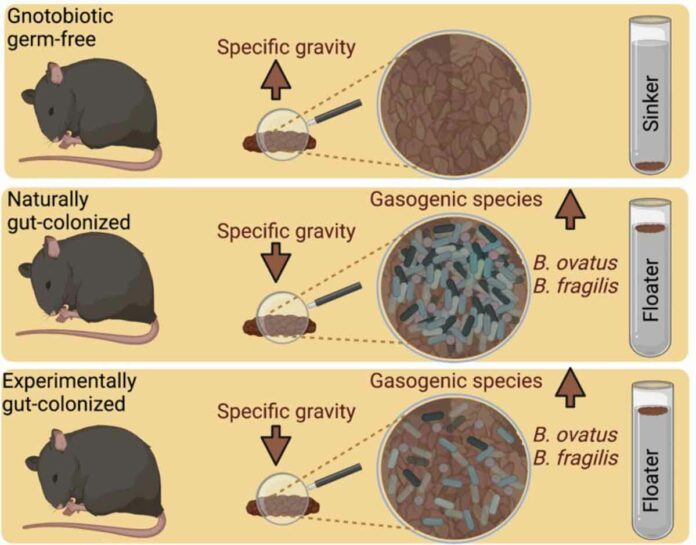How did life come into being? Are we the only ones in the universe? Why does some poop float and bob in the toilet while others sink? These are the big questions that keep us awake at night. And one of them has finally been answered by chance. It is, indeed, the one about poop.
For years, we’ve had no idea why some poop floats while others sink like an anchor. Theories suggest that increased fat content in the stool may contribute to the increased seaworthiness observed in floaters.
One 1972 study published in The New England Journal of Medicine examined the stools of 33 healthy subjects (nine with floating stools, 24 with sinking stools, and six patients with fatty stools). They discovered that when the gas within their stools was “compressed by positive pressure,” all floaters sank (smushing up the poop).
“After degassing, previously floating and sinking stools had similar specific gravities. It indicated that the floating or sinking propensity of such stools depends on differences in gas rather than fat content,” the researchers wrote. They added that the fatty poop was less dense than the others, but this was due to an increase in water rather than fat content.
“Thus, stools float due to an increase in the content of gas or water (or both). The floating stool should not be interpreted as a sign of steatorrhea [increased fat content in poop].”
While all of this is fascinating, it does not explain why there is a difference in gas and water content. However, a team studying germ-free mice recently noticed something unusual about the mouse poop. While approximately 10% of healthy humans consistently produce floaters, mice produce floaters at a rate of approximately 50%. The researchers, who published their findings in Scientific Reports, discovered that the poop of germ-free mice sank.
“Our chance discovery of ‘sinker’ and ‘floater’ faeces in TFS [Trump’s fixative phosphate-buffered solution] in germ-free and gut-colonized mice, respectively, raised the question of whether gut colonisers were fundamentally linked to the genesis of faecal floatation,” the researchers write in their study.
To conduct further research, the team transferred gut bacteria from healthy mice into the stomachs of germ-free mice. Sure enough, their faeces began to float as well.
“We have conclusively demonstrated that gut microbiota colonisation is required for faeces to float by introducing microorganisms into the gut of germ-free mice.”
Though they emphasise that more research is needed to determine which gut bacteria causes floating by introducing them individually to germ-free mice. They analysed human poop and identified a few species of bacteria that were associated with floating poops.
“In fact, we found Bacteroides ovatus to be the most enriched species in our study. And it has been linked to flatulence and anal gas evacuation in human patients. In addition, we discovered Bacteroides fragilis, which is known to produce hydrogen gas in the gut.”

